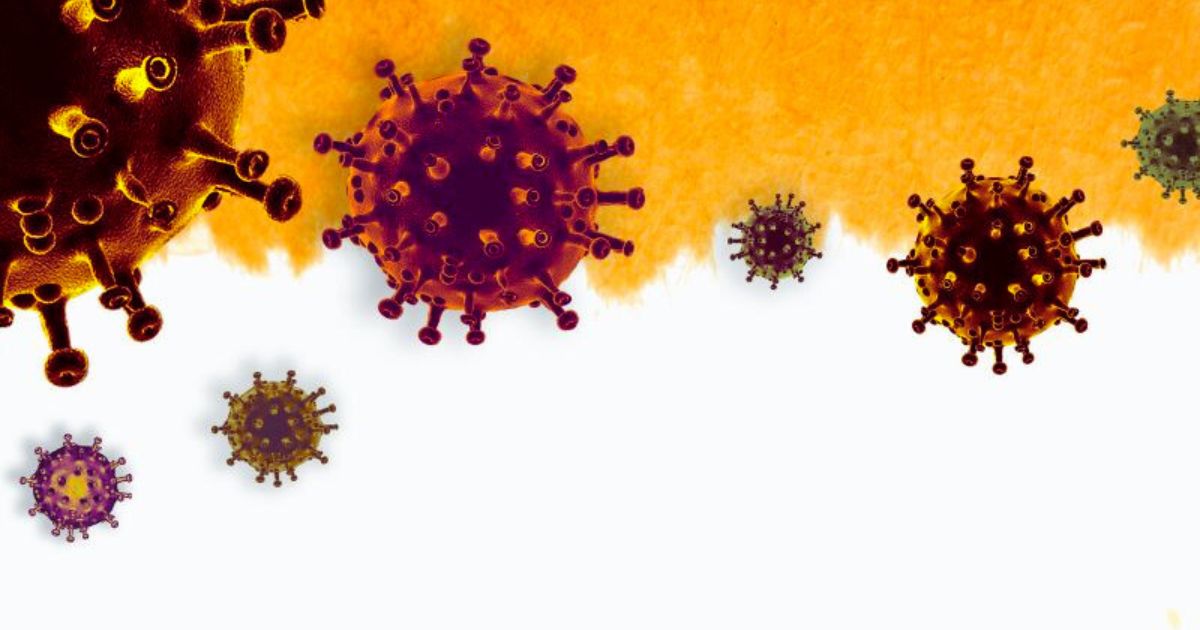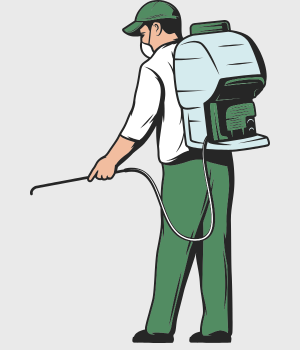What Role Can The Pest Control Industry Play in Fighting Off Coronavirus in Singapore?

Table Of Contents
- How active is the Coronavirus in Singapore?
- What are the Symptoms of Coronavirus (COVID-19)?
- How can the symptoms of the Coronavirus be confused with dengue? Are the symptoms of dengue and the Coronavirus similar?
- What Animals Carry Coronaviruses?
- Can Pests Carry the Coronavirus?
- Can Pest Control Prevent the Coronavirus?
- What Does Killem Pest do to Protect Ourselves and Our Clients from Coronavirus in Singapore?
The year 2020 started with the uncertainties caused by the 2019 novel coronavirus disease (COVID-19). Coronaviruses are a large family of viruses, which include those that cause the Middle East Respiratory Syndrome (MERS-CoV) and Severe Acute Respiratory Syndrome (SARS-CoV).
SARS-CoV is a well-known coronavirus in Singapore as its outbreak in 2003 killed 33 people while leaving various social and economic impacts.
Although COVID-19 is more contagious compared to SARS and MERS, it is less fatal than the two, meaning that it is less likely to kill.
How active is the Coronavirus in Singapore?
There are 85 confirmed cases of Coronavirus in Singapore as of 21 Feb 2020. Moreover, there are currently 5 clusters in Singapore, with the Grace Assembly of God Church being the largest cluster. Most of the cases are linked to one another, but the emergence of cases without any known links to other cases caused Singapore to raise the DORSCON level to orange.
What are the Symptoms of Coronavirus (COVID-19)?
The initial stage or main symptoms of COVID-19 are fever, cough, and shortness of breath.
It is hard to differentiate between COVID-19 and common cold without other indicators such as the recent travel record to mainland China or close contact with other confirmed cases.
In most cases, the symptoms will appear within 5 to 6 days. However, the duration of the period between infection and the onset of symptoms can be as long as 14 days.

How can the symptoms of the Coronavirus be confused with dengue? Are the symptoms of dengue and the Coronavirus similar?
The patient infected with the dengue virus shares similar symptoms as those with COVID-19, such as high fever and headache. However, the one who has the dengue virus may develop other symptoms such as joint and muscle pain, nausea, vomiting, rashes of the skin, and mild bleeding from the nose and gum. Respiratory symptoms such as cough, sore throat, and breathing difficulties are not common in the case of the dengue virus.
In Singapore, a 57-year-old lady who was first admitted as a dengue patient turned out to test positive for COVID-19 on 18 Feb 2020.
After several laboratory testing, MOH (Ministry of Health) had confirmed that this lady is the only known person in Singapore who is infected with both dengue and COVID-19.
Now, there is a deep concern about the laboratory tests of COVID-19, which show negative results initially but ended up diagnosed as COVID-19 in the final examination. It may take more than one test to confirm a COVID-19 case as the viral material collected in the initial test sample may be too little for the test to detect the virus.
Want to learn about disinfection services to protect against COVID-19?

What Animals Carry Coronaviruses?
There are many coronaviruses known to circulate among animals and birds in the world. Nonetheless, only seven of them are capable of causing disease in humans. Some animals that are closely related to coronaviruses include bats, camels, and cats. The animal source of the COVID-19 virus has not yet been identified.
An animal from the live animal market in China may have caused the first reported human infections. Let’s look at the case of SARS coronavirus. The common perception is that it originated from bats that transmitted it to humans directly. Instead, it jumped to infect humans via civet cats. Furthermore, MERS coronavirus was also believed to have originated from bats but jumped to infect humans via camels.
Can Pests Carry the Coronavirus?
In view of WHO (World Health Organization), there is no evidence at present to show COVID-19 can infect pests or spread through pests. Currently, it spreads only by infected people.
Can Pest Control Prevent the Coronavirus?
While pests may not spread COVID-19, controlling the population of pests around you reduces the number of disease-carrying pests such as mosquitoes and rodents.
Some of the pest control companies provide disinfection service that can effectively kill various germs, including coronaviruses.
Pest management professionals are equipped with the necessary chemicals and equipment to eliminate harmful pathogens.
Pro Tip: Pest infestation in your home is bad anyway, but the ongoing COVID-19 pandemic can make them even more dangerous than usual.
What Does Killem Pest do to Protect Ourselves and Our Clients from Coronavirus in Singapore?
In light of recent events with regards to COVID-19, Killem has been adhering to measures put in place by the Ministry of Health and the World Health Organisation. All our staff are
- To have their body temperatures checked and recorded twice a day
- Required to wear masks when entering client sites
- Must see a doctor and stay away from work for at least 5 days if they are unwell
Our Pest Management Professionals (PMPs) receive a thermometer per vehicle to ensure this, and they use hand sanitiser before and after each job.
It is our responsibility and duty to protect our family and friends from the Coronavirus in Singapore.
Avoid COVID-19 by taking necessary actions.
A good practice of respiratory hygiene is the staple step in preventing the spread of it. Notably, disinfection is vital to ensure our living and working environments are free of germs and viruses.

Concerned About COVID-19? Let Us Help.
We provide fast and effective disinfection solutions to eliminate harmful germs and viruses, ensuring a safe and hygienic environment for your home or business.
For the last 27 years, Killem has been at the forefront of protecting Singapore from vector-borne diseases such as Zika and Dengue. Right now, we are doing our part to curb the spread of the contagious Coronavirus Disease (COVID-19), so please contact us if you need our assistance in the fight against the disease. We offer a Home Disinfection Service and a Disinfectant Spray.
Frequently Asked Questions
Pests can cause damage to property and be a health hazard as they spread diseases. That’s why it is important to protect homes and workplaces from pest invasion.
Spending significant time at home due to COVID-19 can attract unwanted bugs, rodents, and other invasive pests. Leaving unfinished food or garbage inside or outside your home creates pest-friendly conditions.
Pests don’t pause during the pandemic, so keep an eye out for cockroaches, rodents, flies, and other bugs on your property.

